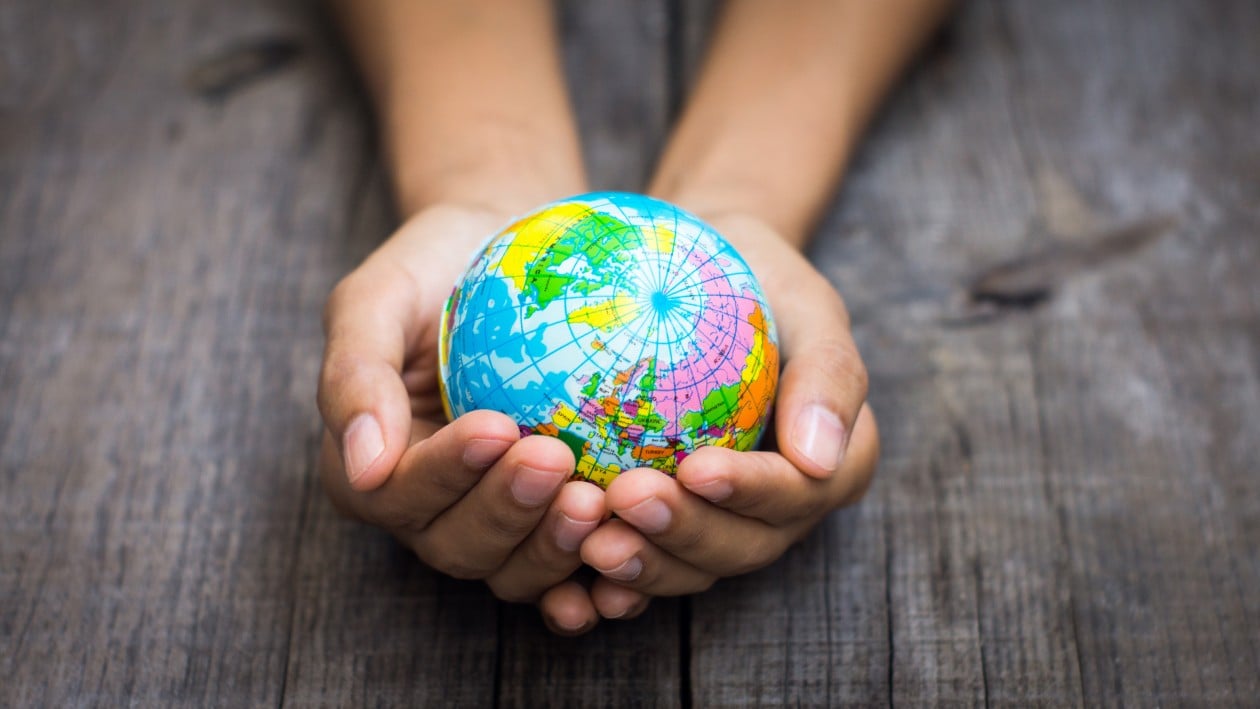This is the second in a series of posts about international education. To recap, international education might be something that is not aligned with the national curriculum within which the international school exists. It could also be considered something that is offered as “the other”. That is, it is something that exists because what it has to offer students will not be or may not be found in the national curriculum of the country in which the international school is found. The last post on this subject area presented several quotes that sought to define international education. In this particular post, the focus is shifting to what is meant by intercultural education.
The intercultural education network defines intercultural education as that which:
…promotes the understanding of different people and cultures. It includes teachings that accept and respect the normality of diversity in all areas of life. It makes every effort to sensitize the learner to the notion that we have naturally developed in different ways. It seeks to explore, examine and challenge all forms of “isms” and xenophobia, while promoting equal opportunity for all. Intercultural education works to transform not only the individual but the institution as a metaphor and mechanism for the transformation of society.
H. Chad Lane, in 2012, defined it as:
the acquisition of knowledge and skills that support the ability of learners to both understand culture and interact with people from cultures different from their own.
The UNESCO Guidelines on Intercultural Education states:
In a world experiencing rapid change, and where cultural, political, economic and social upheaval challenges traditional ways of life, education has a major role to play in promoting social cohesion and peaceful coexistence. Through programmes that encourage dialogue between students of different cultures, beliefs and religions, education can make an important and meaningful contribution to sustainable and tolerant societies.
Intercultural Education is a response to the challenge to provide quality education for all. It is framed within a Human Rights perspective as expressed in the Universal Declaration of Human Rights (1948):
“Education shall be directed to the full development of human personality and to the strengthening of respect for human rights and fundamental freedoms. It shall promote understanding, tolerance and friendship among all nations, racial and religious groups, and shall further the activities of the United Nations for the maintenance of peace”.
More recently, UNESCO has published its Global Citizenship Education paradigm and in the process it set intercultural education within the context of global citizenship. Global Citizenship Education: Preparing learners for the challenges of the 21st century (p.14) defines Global Citizenship Education to have differences in interpretation but…
…a common understanding that global citizenship does not imply a legal status. It refers more to a sense of belonging to a broader community and common humanity, promoting a ‘global gaze’ that links the local to the global and the national to the international. It is also a way of understanding, acting and relating oneself to others and the environment in space and in time, based on universal values, through respect for diversity and pluralism. In this context, each individual’s life has implications in day-to-day decisions that connect the global with the local, and vice versa.
I do not believe that intercultural education or intercultural learning is a straightforward thing to define. From the couple of definitions presented here, and I realise there are others to look at, intercultural learning rests on the notion of promoting respect for others and their culture. Its aim is to equip and encourage students to engage in dialogue with each other. This is so that there is a mutual cultural understanding that is conducive to tolerance and sustainability within societies across the world.
In some sense, this appears to be synonymous with the idea of global citizenship. Perhaps to put it another way, intercultural education or intercultural learning is the outworking of or the teaching that underpins global citizenship. In having intercultural learning in our schools we are authentically raising up global citizens.
